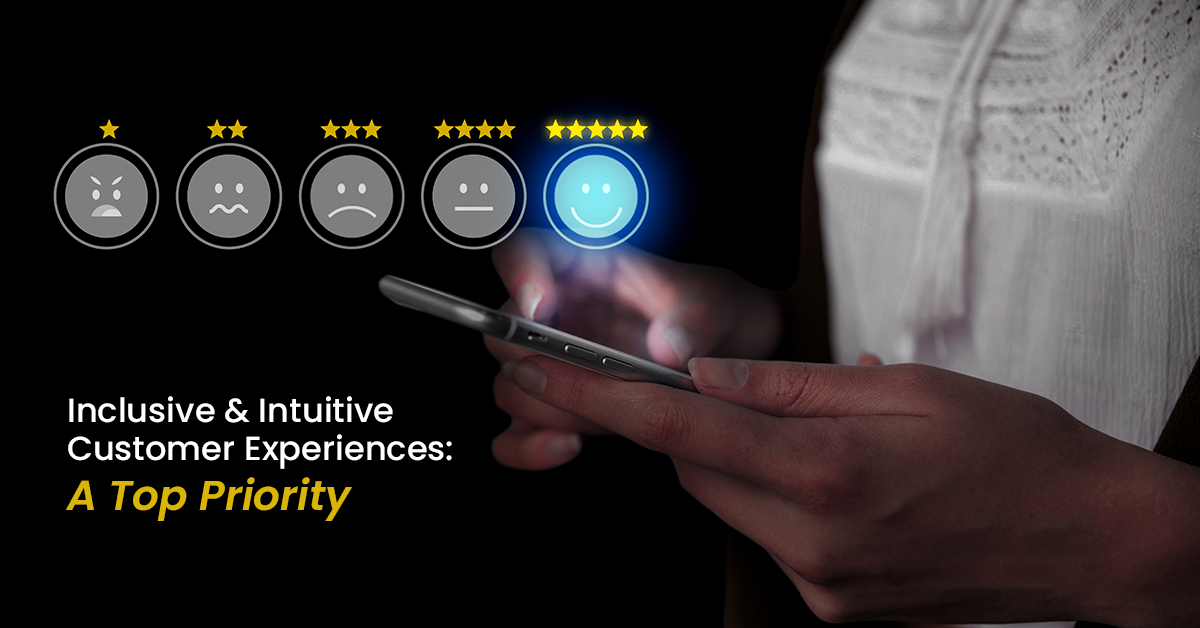
Customer satisfaction is a crucial component of marketing. It describes the total perception a consumer has of a brand as a result of all of their interactions with it. Businesses nowadays must prioritize providing outstanding customer experiences because of the fast-paced environment and the wide range of alternatives available to customers. This is due to the fact that a satisfied customer base may have a significant influence on a brand's reputation, customer loyalty, and ultimately, its financial performance.
Marketing 2.0 Conference brings together marketing experts from all around the world to discuss cutting-edge developments in the industry. One of the major themes of this event is to identify and educate people about the importance of inclusive and intuitive customer experience. Let's explore professional insights from this global marketing event of 2023.
Importance Of Customer Experience
A pleasant customer experience is critical to your business's success since a happy client is more likely to become a loyal customer who can help you increase revenue. A consumer who is loyal to your company promotes your business through word-of-mouth marketing and advocates for your brand and product or service is the greatest marketing money can buy. Entrepreneurs and marketing professionals may learn more about how the customer experience impacts the company at renowned marketing conferences.
A satisfying customer experience may contribute to a brand's excellent reputation. In an increasingly online world, building and keeping a solid brand reputation is important for success. Consumers, stakeholders, future workers, and the general public may now access a wealth of information about any brand thanks to the internet and social media in particular. From online evaluations and ratings to social media posts and influencer reviews, viral PR nightmares are all possibilities.
Consumers are more likely to remain loyal to a brand when they have a good experience with it. Customers who are loyal to a brand are more likely to make additional purchases and recommend it to others. Increased client loyalty aids business growth. While it is evident that returning customers who spend more money are beneficial to the company, there are additional, more subtle, advantages to loyal consumers. Finally, satisfied clients refer the company to their family and friends.
Inclusive And Intuitive Customer Experience
Customer experiences that are both inclusive and intuitive are critical components of a successful company strategy. While they may appear to be similar, they are diverse and essential in their own right. As a result, upcoming marketing conferences have prioritized this issue on their agendas. Let us investigate and contrast them from a larger standpoint.
An inclusive customer experience focuses on making all customers feel welcome and included, regardless of their origin or identity. This encompasses everything from product and service design to marketing campaigns and customer service encounters. An intuitive customer experience, on the other hand, focuses on making it simple for customers to interact with a firm. This includes easy-to-use websites, smartphone applications, and other digital platforms that display essential information.

Impact On Business
For good reason, customer experience has become a household phrase among businesses of all shapes and sizes over the years: it is the key to a company's long-term success. Even one unpleasant customer experience can turn a consumer away for good and perhaps generate a ripple effect that influences the impressions of other customers. Why? Customers who have had a horrible experience are significantly more inclined to complain, submit a nasty review, and tell their whole network about it.
Global marketing conferences in 2023 agree that together, these two types of customer experiences can have a great positive impact on the growth of a business, regardless of its scale. By taking a customer-centric approach and prioritizing both inclusive and intuitive customer experiences, businesses can differentiate themselves from the competition and position themselves for long-term success.
Driving Business With Intuitive And Inclusive Customer Experience
Inclusive and intuitive customer experiences are critical to the success of any business. While they have different focuses, they both play a crucial role in creating a positive and engaging customer experienceṣ. Marketing researchers and professionals at upcoming marketing conferences believe that by prioritizing both inclusive and intuitive customer experiences, businesses can boost their revenue. But this employs a tactical approach and a thoughtful schedule and timing. Below are ways that marketing professionals at the Marketing 2.0 Conference suggest that can enhance business productivity:
- Conduct In-Depth Research
Companies must comprehend the wants, preferences, and problems of their consumers in order to build inclusive and intuitive customer experiences. Businesses may learn what their consumers want and how to enhance the customer experience by doing in-depth research, such as surveys, focus groups, and customer feedback.
- Personalize The Experience
To provide a welcoming and logical consumer experience, personalization is essential. Businesses may personalize their marketing initiatives, such as emails, product suggestions, and incentives, to make consumers feel appreciated and understood by leveraging customer data.
- Accessibility
Give accessibility first priority since it's essential to a welcoming client experience. All consumers, including those with disabilities, should be able to access a company's goods and services. This can entail selling adaptable items, making sure physical venues are accessible to people in wheelchairs, and delivering material in alternate forms.
- Streamline The Customer Journey
Providing customers with an intuitive customer experience involves making it simple for them to interact with a company and browse its website. Businesses should work to make the customer experience seamless and convenient for customers by streamlining the customer journey from browsing to purchase. Self-service choices, numerous payment alternatives, and website and app design optimization are a few examples of how to do this.

Employee Training For Increased Customer Satisfaction
It's true that employees play a key role in developing a welcoming and simple client experience. To offer an enjoyable and satisfactory customer experience, businesses must teach their employees to enhance their skills, particularly in providing an inclusive and intuitive customer experience. Employers should educate staff members on the value of inclusiveness and arm them with the resources they need to perform outstanding customer service. Numerous conferences for marketing professionals simplify the procedure and stipulate the methods. Here are some strategies companies may utilize to teach their staff:
- Provide Diversity And Inclusion Training
Understanding and valuing diversity is one of the most important components of establishing an inclusive customer experience. Employees may learn the value of inclusivity and how to engage with clients from varied backgrounds by receiving diversity and inclusion training.
- Role-Play Activities
Employees may practice engaging with clients in a style that prioritizes inclusion and intuitiveness by participating in role-playing activities. Employees may practice addressing complaints from customers, responding to frequent consumer questions, and making tailored advice.
- Regular Feedback
Employees may discover areas for growth and adapt their approach by receiving regular feedback and coaching. Employers should receive constructive criticism from their managers that focuses on their strengths and opportunities for development.
- Using Examples
Using examples from the real world can assist staff members learn how to prioritize inclusion and intuition in various circumstances. Employees, for instance, can study client comments and talk about ways to enhance customer encounters.
- Encourage Empathy
Employees who are encouraged to put themselves in the customer's shoes will better comprehend their requirements and preferences. Businesses may provide empathy training that educates staff members on how to actively listen, pose probing questions, and compassionately address client requirements.
Upcoming marketing conferences intend to educate people about the multifaceted strategy required to train staff to prioritize the inclusive and intuitive customer experience. Businesses may develop a customer-centric culture that prioritizes inclusion and intuitiveness by giving staff training a top priority, which will eventually lead to business development and success.
Bottom Line
In conclusion, to compete in a market that is getting more competitive, firms must prioritize providing inclusive and intuitive consumer experiences. Upcoming marketing conferences are anticipated to raise awareness about the need of prioritizing these tactics so that companies may stand out from the crowd, cultivate long-lasting customer connections, and ultimately promote corporate success.
Additionally, given the quick-paced and ever-shifting business environment of today, businesses must continuously change and modify their strategy to match shifting client wants and preferences. Businesses may continue to develop and enhance their customer experiences while gaining a sustainable competitive edge by paying attention to customer feedback and investing in employee training.
Businesses in the modern economy should place a high premium on developing an inclusive and simple consumer experience. This is why everyone hoping to increase their chances of success in business should go to the forthcoming Marketing 2.0 Conference in Dubai and the USA. Any marketing enthusiast can learn from the top professionals in the sector here and follow their paths and points of view.

